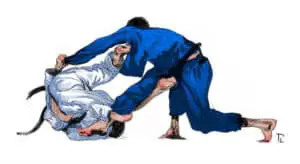You have been bitten by the BJJ bug. You love the sport and are always on the look out for ways to improve your BJJ skills. You may have heard a training partner espouse the benefits of Judo or logically thought that as the two sports are similar that Judo must help your BJJ. Is that really the case though? Let’s see what benefits Judo can bring to your BJJ game.
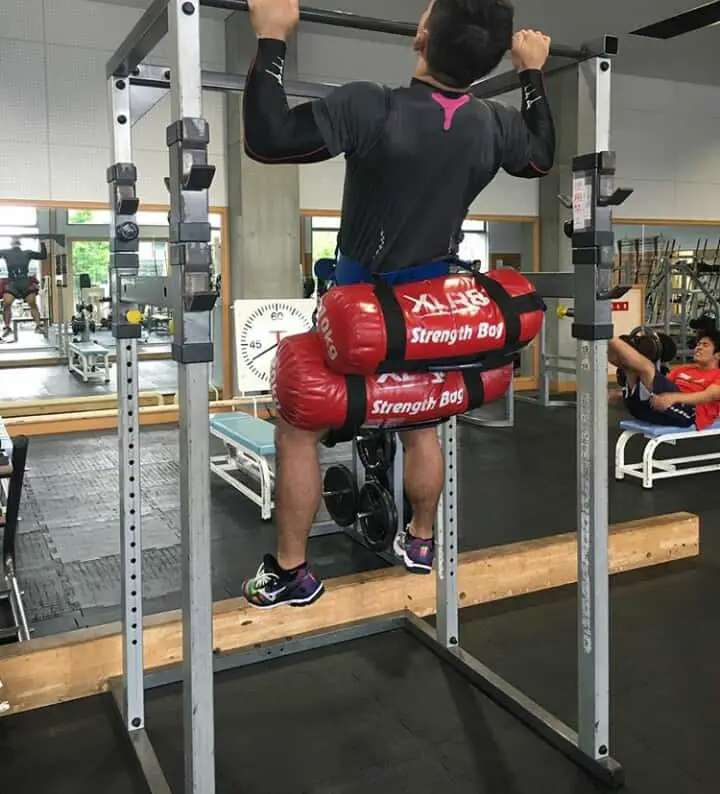
Will Judo help my BJJ? Yes, Judo will help your BJJ. Judo will improve your stand up game, turning you into a takedown monster. Judo will improve your transition from standing to submission. Judo will improve your overall coordination and athleticism. Judo will strengthen your grips and make you more effective in a street fight.
Will Judo Improve My Takedowns For BJJ?

Judo will significantly improve your takedowns for BJJ. BJJ athletes if they are lucky spend only 20% of their training time learning takedowns. In contrast, Judo athletes spend 80-90% of their training time learning takedowns. This results in Judokas being experts at takedowns.
The entire sport of Judo is based around takedowns. If a Judo coach can’t improve your takedowns nobody will be able to. Judo has developed an advanced curriculum on how to best teach takedowns. Judo coaches are experienced in taking a beginner and turning them into a throwing machine.
Takedowns are often taught poorly in BJJ due to coaches lacking experience and due to the little time dedicated to them. In BJJ a coach will show a takedown or two and you will practice it for 15 mins and that will conclude your takedown practice. There is no discussion about set ups, off balancing your opponent and key details. Then there is often little to no live training so you do not get a chance to try your takedowns against resistance. Which BJJ coaches understand is of paramount importance when it comes to BJJ techniques but somehow don’t realize it is also necessary for takedown development.
Judo has a different style of teaching takedowns. Judo using the following progressions to teach takedowns:
- Breakfalls – Before you can start throwing and being thrown a Judo coach will teach you how to fall, Judo throws can be dangerous if you don’t know how to fall, you can snap your incorrectly stretched arm or bounce your head off the mat like basketball, Judo coaches will ensure when you are thrown you stay relaxed, make your body long, don’t post with your arms, tuck your chin and slap the mat to disperse force
- Grips – Before you can throw you need to establish a dominant grip, a dominant grip can be the difference between launching your opponent through the air and your opponent not moving an inch, Judo will teach exactly how to grip, when to grip and which grip you need for specific throws, Judo will turn you into a gripping monster
- Off Balance (Kazushi) – You can not throw an opponent who has a firm balance, you see this too often in BJJ where someone will attempt a big throw that has no chance of success because their opponent is firmly planted on the ground, Judo will show you the best methods to off balance your opponent so it feels effortless when you throw them, Judo will show you different movements and pushing/pulling methods you can use to get your opponent wanting to fall over without even having to throw them
- Throw Entry (Uchikomi) – The next step in learning Judo throws is practicing the footwork, the footwork can be tricky and can have multiple steps, in Judo your training partner will stand in place and you will just practice the footwork that you need to start the Judo throw, you will practice this over and over again until it becomes second nature
- Throw (Nagekomi) – After learning how to grip, off balance and the footwork you are finally ready to execute the throw, you will start off throwing your training partner who will not offer any resistance, the majority of Judo training is made up of and your training partner throwing each other, you will do thousands of throws until they are ingrained into your muscle memory
- Sparring (Randori) – After you are comfortable throwing your training partners without any resistance, it is time to dial up the intensity and add some resistance to your training, now you will spar against your training partners and have mock matches, you will attempt to throw each other, this takes some getting use to but after a few months of practicing you should have no issues throwing your training partners
Does Judo Have Submissions?
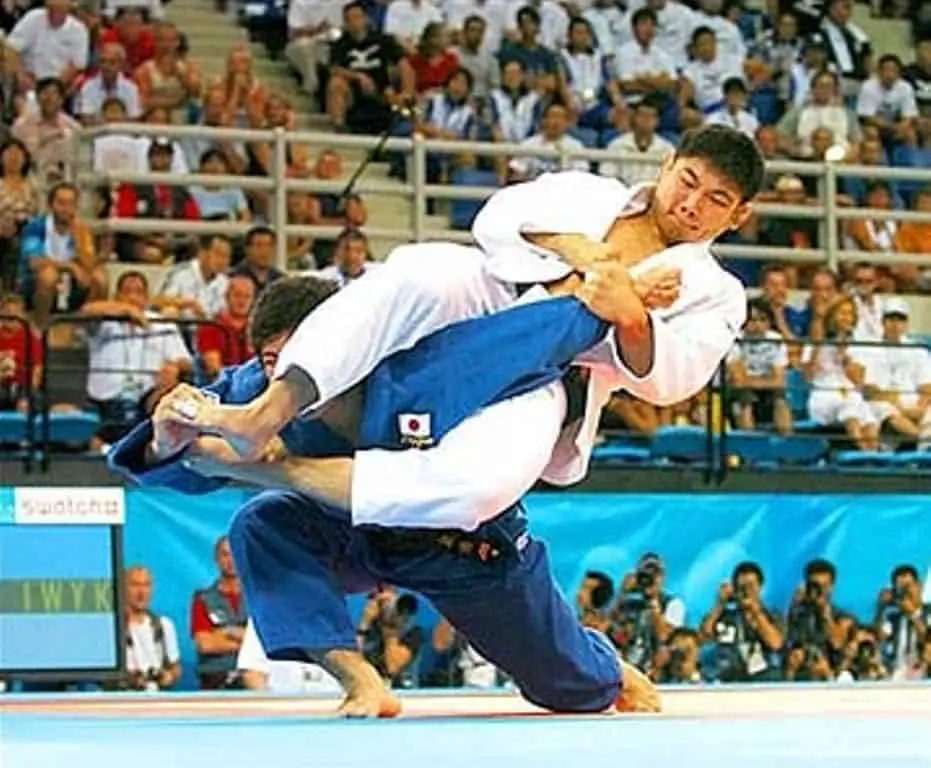
Yes, Judo does have submissions. All the submissions found in BJJ were part of the original Judo curriculum. Judo still allows a variety of submissions in competitions including chokes and arm locks. The arm bar is the most popular submission in Judo.
Judokas are experts at blending takedowns and submissions together. In Judo athletes only have a short time to attack submissions before the referee will pause the action and force the two athletes to stand. Due to this time constraint Judokas are very fast at transitioning from takedown to submission.
BJJ athletes in contrast are poor at transitioning from takedown to submission. These two areas are taught as distinct disciplines in BJJ which prevents fluid movement between the two actions. Instead you get a stop start motion where a BJJ athlete will in his mind think takedown, pause, then start doing BJJ. BJJ athletes need to stop separating takedowns and submissions and instead see them as being intimately linked.
Judo does not place a firm distinction between takedowns and submissions. This is a skill and mindset that BJJ athletes can learn from Judo. If BJJ athletes incorporate the ability to transition quickly and smoothly from takedowns into submissions they can catch a lot of their opponents off guard and significantly improve their submission rate.
Will Judo Make Me Stronger And More Athletic?
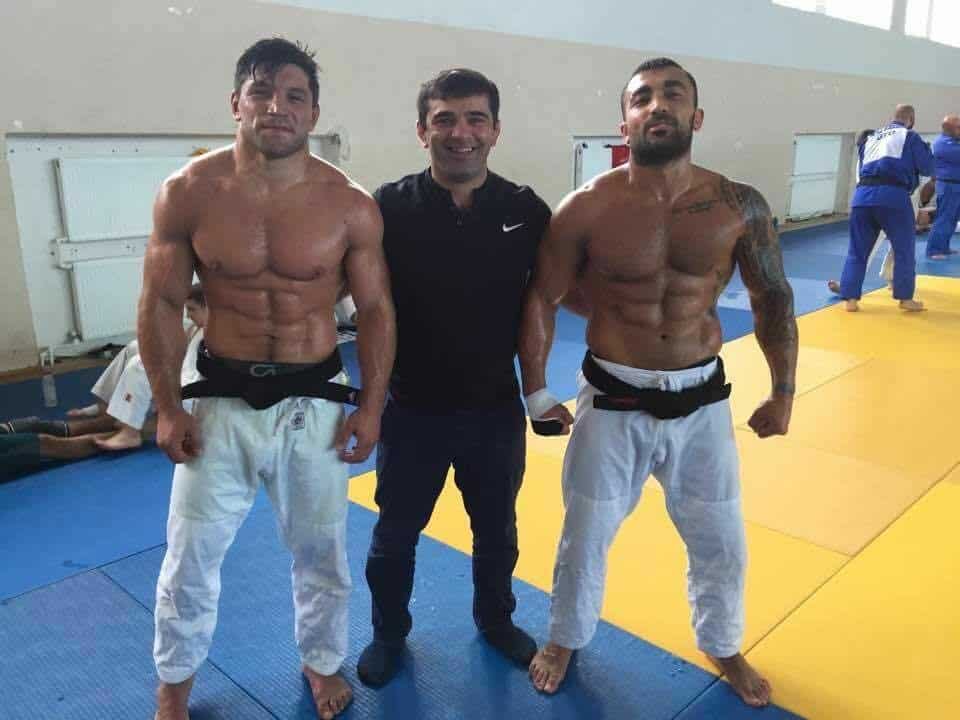
Judo will you stronger and more athletic. Judokas spend hours everyday picking up and throwing their training partners. They combine this training with calisthenics and weighted body weight exercises such as pull ups and squats. This makes them very strong and athletic.
BJJ athletes are not known for being particularly strong or athletic especially compared to Judokas and wrestlers. Judo has always had a strong history of strength training and the nature of the sport requires more strength than BJJ.
BJJ athletes can benefit greatly by improving their strength and athleticism. An athlete can never be too strong or mobile. By training in Judo BJJ athletes will increase their muscle size, strength and learn to perform movements they haven’t been able to in the past.
Judo will not only teach you how to throw people through the air it will teach you gymnastic movements such as flips, handstands, cartwheels and will increase your strength by putting you through tough strength workouts where you will be doing hundreds of Judo pushups, pull ups and squats.
After training Judo for a while don’t be surprised if your BJJ training partners think you are on the juice, because you will feel a lot stronger and you may need to buy a new Gi to fit your newly developed muscles.
How To Improve My Grips For BJJ?
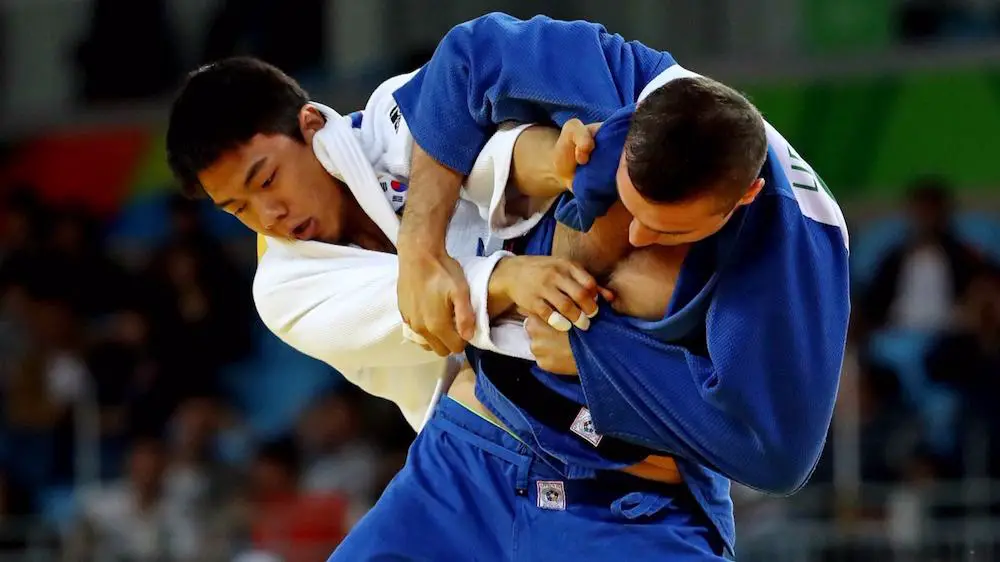
A great way to improve your BJJ grips is to train Judo. Judo will show you the best way to grip. Judo will breakdown the technique on how to establish grips, when to establish grips, what grips to establish, how to maintain grips and how to break grips.
Judo athletes are known for having incredibly strong grips. Any time a Judoka drops into your BJJ school be sure to take note of their grips, they will feel like iron. If you practice Judo you too will be able to build hulk like grips.
After years of Judo the tendons in your hands and fingers will develop and strengthen. This will give you incredibly strong grips. If you combine this newly developed tendon strength with correct gripping technique you will have vice like grips and you will have a very easy time controlling your opponents.
Will Judo Help Me In A Street Fight?
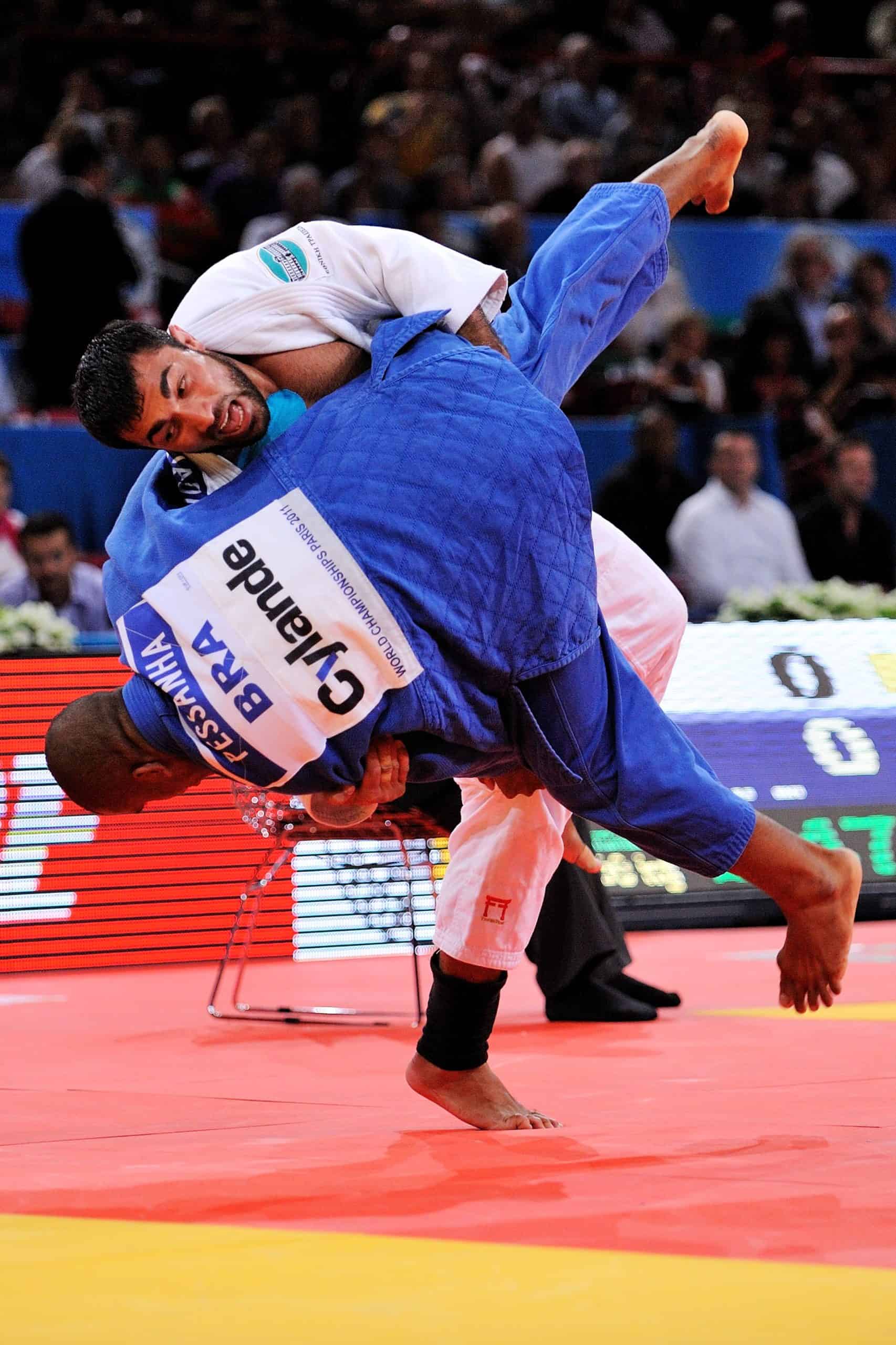
Judo will help you in a street fight. BJJ is great in a street fight if you can get the fight to the ground. Unfortunately, many BJJ athletes do not have strong takedowns and many may not be able to get a street fight to the ground. Rendering, their BJJ useless.
This is where Judo comes and saves the day. Judo will teach you how to takedown an attacker in a variety of different ways. You will spend hundreds of hours learning to takedown trained opponents that when it comes time to throw an untrained attacker you will have no problem launching them through the air.
The great thing about Judo is you can end a fight with a single throw. If you throw an attacker on a hard surface such as concrete they can easily be knocked out by a single throw. If they are still fighting after the throw you can pin them or submit them and quickly end the fight.
As all street fights start standing BJJ athletes need to know how to takedown an attacker. If they don’t a large portion of their BJJ skills are useless. By adding Judo to their training regime BJJ athletes will be much more effective in a street fight as they will be confident in their ability to take the fight to the ground.
Conclusion
Judo is a great compliment to your BJJ game and will help you develop a number of skills which can be difficult to learn in BJJ. Judo will greatly improve your takedown game. Judo will show you how to effectively transition from takedown to submission. Judo will help you develop vice like gripping strength. Judo will increase your overall strength and athleticism. Judo will make you more effective in a street fight.
